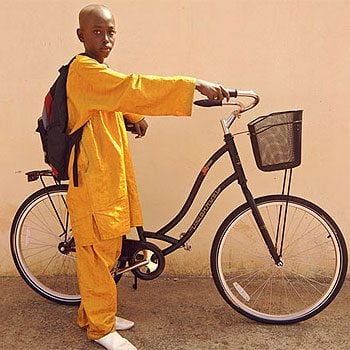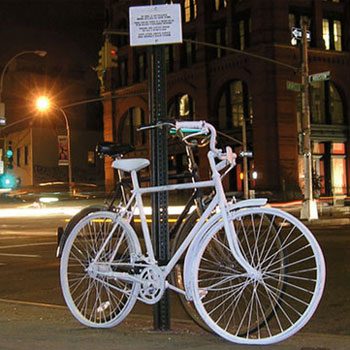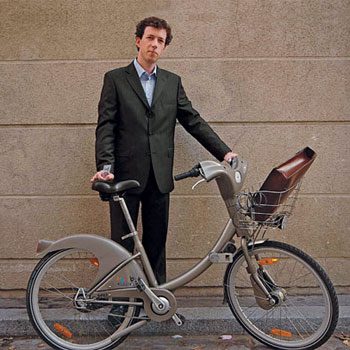
It’s estimated that there are more than one billion bicycles currently on the road worldwide.

A Lifesaver
Health care workers in Senegal, Namibia and other African nations usually walk miles over dusty roads to deliver food, medicine and companionship to people with HIV/AIDS. But with the donation of 1,500 single-speed bicycles by BikeTown Africa, caregivers now visit as many as six times more people in need. The program, a partnership between Bicycling magazine, Kona Bicycle Company and Bristol-Myers Squibb, has a broad mission: Says Steve Madden, editor-in-chief of Bicycling, “One bike at a time, we can solve big problems and change the world.”

A Concept
We have seen the future-it’s ergonomic and carbon composite. Conceived by German industrial designer Harald Cramer, 27, the Oryx is a spare machine: Its seat is moulded onto its frame, and the handlebars, fork and stem are all of a single piece. The Oryx is made for speed-theoretically, anyway, since it’s still just a model. Estimated cost? $9,500.

A Memorial
Forty-one bicycles have been chained to signposts around New York City, each painted white and emanating an otherworldly glow. These “ghost bikes” mark sites where cyclists, known or not, have died in crashes (773 cyclists lost their lives in the U.S. in 2006 alone). “We all share these streets and we have to look out for each other,” says Leah Todd of New York City’s Street Memorial Project, which created the ghost bike in 2005. Similar tributes have rolled out in 35 other cities worldwide.

A Community Property
Cyclocity, a bike-sharing program in France, christened its wheel deal in Paris in 2007 to reduce congestion and exhaust on city streets (in Lyon, a similar scheme cut traffic by 10 percent). Swap points at 1,500 locations across town let riders borrow bicycles with ease. Commuters especially like the sturdy bike because of its wide rear fender-great for coats, which can drape onto the back wheel without getting entangled. Montreal installed the first North American system when BIXI was launched in Sept 2008.